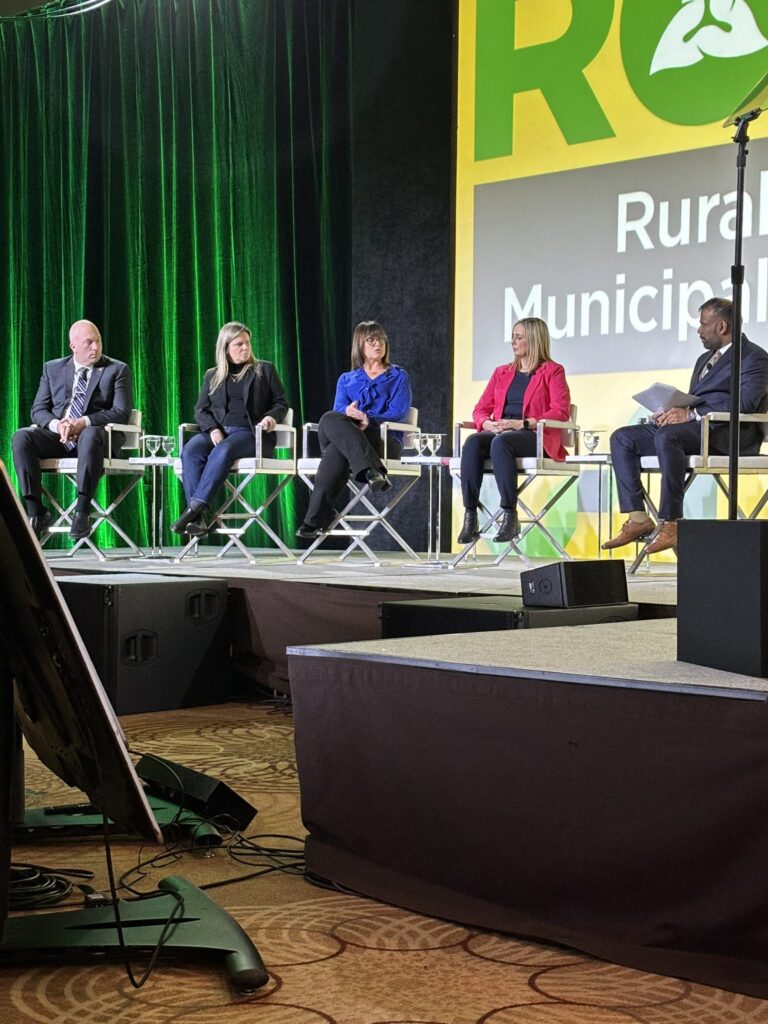Agriculture’s importance to rural economic development highlighted at ROMA event

Drew Spoelstra was pleasantly surprised by the agriculture sector’s recognition at the Rural Ontario Municipal Association (ROMA) annual conference held earlier this week.
Read Also
AgScape and FoodGrads partner to inspire Ontario youth in food and beverage careers
AgScape has announced a new partnership with FoodGrads, an interactive platform focused on helping close the gap between students, graduates…
“(There’s) recognition that agriculture is a huge economic driver in this province,” the president of the Ontario Federation of Agriculture (OFA) told Farmtario.
“And we continue to supply a lot of jobs and, obviously, food, fibre, fuel, and flowers for consumers across the province.”
Why it Matters: The OFA took full advantage of its inaugural ROMA main-stage appearance to highlight agriculture’s integral role in rural economics, the environment and food security.
“The other positive is our message around infrastructure investments, both hard infrastructure and social, like health care, schools and rural areas, and the ability to reinvest in rural communities has been pretty positive,” Spoelstra added. “And we will continue to carry that message going forward.”
Spoelstra participated in the Future of Feeding Ontario panel on Jan. 21 that took a deep dive into addressing food insecurity, solutions for allowing people to access affordable food, and what agriculture and commodity groups are doing to support those efforts.
The panel delved into the state of the agriculture industry, what it provides to rural economics and jobs, succession planning, introducing more people into the industry, land use, housing, and protecting the agriculture system now and in the future.
Spoelstra said the discussion was not only about ensuring the sustainability of prime agricultural land across the province, but that the agriculture system is protected. He said it’s important to ensure “farmers can work within the policies and things governments put in place (while having the) opportunity to continue to grow and expand our businesses and meet some of the targets put out by governments.”
Spoelstra said not much is coming out of the Ministry of Municipal Affairs and Housing lately, but he expects a provincial housing supply action plan isn’t far off.
However, he knows municipal leaders speak to ministers about the importance of farmland and urban boundaries.
“I know the message is certainly getting across, not only from us but from commodity and municipal partners,” he said. “We will continue to keep advocating for better protections of farmland and hopefully see some results from the Ministry on trying to preserve farmland and preserve agriculture across the province.”
Ontario Agriculture, Food, and Rural Affairs Minister Lisa Thompson told ROMA attendees the province is launching consultations to develop a new Rural Economic Strategy in tandem with ROMA’s.
“We want to hear from you and where you think that proverbial puck is going in terms of local business development opportunities,” Thompson said. “We also recognize that no two communities are alike in this province, and the opportunities, because of that, will differ.”
She said the province will work with stakeholders and partner ministries on a broader approach, identifying trends and conditions impacting communities and opportunities to shine economically.
There is a website with key discussion questions and feedback opportunities to facilitate increased participation. In late February, the province will launch a rural Ontario-focused virtual summit to discuss rural communities’ challenges and opportunities.
Despite challenging times, Spoelstra said municipal and provincial leader support hasn’t skipped a beat the past few years, and maintaining those connections is critical.
“That’s why we are here at ROMA, to continue those conversations, to continue to work together and make sure agriculture voices are heard,” Spoelstra said about regulations and infrastructure plans.
“That municipal governments, municipal leaders, provincial leaders, consult with us and with members before some of these bigger projects are undertaken. (To) ensure we can have input wherever needed and help move the conversations forward.”
For example, proposed changes to stormwater management regulations could see farms and rural businesses charged under the industrial, commercial, and institutional rates, leading to significant annual fees.
“Stormwater management is largely urban infrastructure, and that’s what municipalities are trying to fund,” Spoelstra explained. “When farmers aren’t draining into that system, it certainly creates some challenges for our members, both financially and from a mental health side.”
He explained that farmers in the Hamilton and Peel Regions, Cobourg, and other provincial areas will be affected. This is why building and maintaining solid relationships with different ministries and municipalities to facilitate dialogue and, ideally, local change is so critical.
Spoelstra said, ideally, OFA and ROMA will continue to partner so those with first-hand agriculture, food, and farming business experience and insight remain an integral part of the rural development conversations.
Source: Farmtario.com

